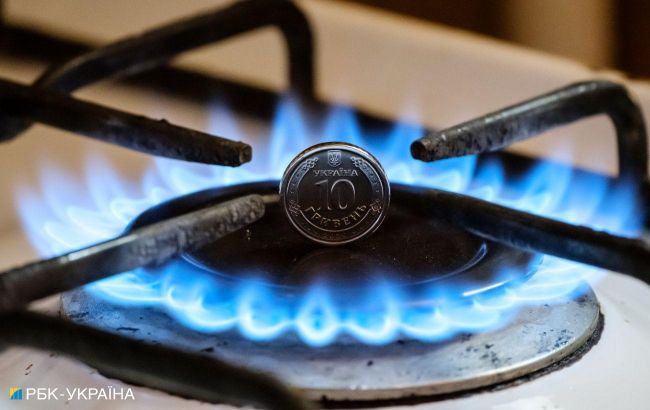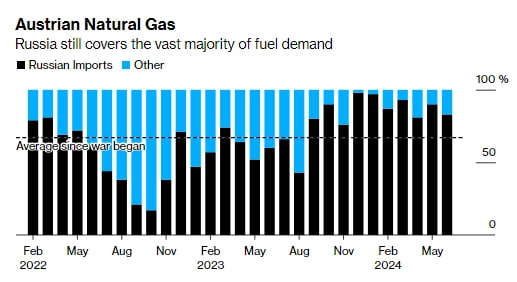Austria urgently seeks to cut ties with Russian gas amid 'massive risk'
 Photo: Austria seeks to cut Russian gas dependency (Vitalii Nosach, RBC-Ukraine)
Photo: Austria seeks to cut Russian gas dependency (Vitalii Nosach, RBC-Ukraine)
Austria sees a "massive risk" if the supply of Russian natural gas is suddenly cut off and emphasizes the need to eliminate this dependency as soon as possible, according to Bloomberg.
“As long as there is a dependency on Russian gas supplies, there is a massive risk of a corresponding supply failure with far-reaching consequences. We must end Austria’s dependency on Russian gas supplies as soon as possible,” Austria’s Energy Ministry wrote in response to questions.
Austria's ruling coalition has pledged to cease importing Russian gas by 2027 as part of a broader transformation of the country's energy system. The government is expected to present a detailed roadmap ahead of the national elections on September 29.
Alternative routes
"Even without Russian gas, Austria has enough pipeline capacity over Italy and Germany to cover more than double its annual demand, according to a government report published in June. Transit capacity will rise to 212 terawatt-hours annually in 2027, from about 185 terawatt-hours this year," Bloomberg says.
Austria's fuel consumption fell by about 23% in the first half of this year compared to the average demand of 91 terawatt-hours before Russia invaded Ukraine in February 2022. Last year, the country used only 75 terawatt-hours of gas.

Source: Austrian government data compiled by Bloomberg
According to the worst-case scenario published by the government, if Russian gas flows are abruptly halted and Austria cannot supply more fuel through Italy, gas storage levels could drop to 15% of capacity by 2026.
The most likely scenario envisions a cessation of Russian supplies in January 2025, with new deliveries through Italy meeting the increasing demand, and storage facilities being filled to 60% by 2027.
Austria has maintained one of the oldest and closest ties to Russian energy in Europe and in 2018 extended a long-term gas contract until 2040.
State-owned OMV AG, the country's largest fossil fuel company, grew out of the Austrian State Treaty, concluded after World War II, under which Soviet-controlled energy assets were handed over in exchange for the country's neutrality.
It's worth noting that, according to Bloomberg, Russia and Ukraine intend to continue supplying pipeline gas to Europe. However, the Sudzha transit point in the Kursk region has come under Ukrainian control.
Ukraine continues to fulfill the terms of the transit contract with Moscow, despite the ongoing war. The contract is set to expire at the end of 2024.

